It has been more than three years since the federal government pulled back the curtain on college basketball's seedy recruiting underworld.
A multiyear federal investigation into bribes and other corruption led to the arrests of 10 men, the convictions of three, and guilty pleas from seven others.
Six assistant coaches whom prosecutors accused of accepting bribes to steer players to certain financial advisers and managers -- all of them African American -- were either fired or resigned.
Just one head coach of a program ensnared in the scandal was fired -- Louisville's Rick Pitino, who is now coaching at Iona.
Other head coaches, including Arizona's Sean Miller, Auburn's Bruce Pearl, Kansas' Bill Self, LSU's Will Wade and Cal State Northridge's Mark Gottfried, have continued to work and earn millions of dollars in compensation.
Only one of a dozen Division I programs that either received an NCAA notice of allegations or acknowledged they were under investigation has had its case adjudicated. This summer, Oklahoma State was put on three years of probation and banned from playing in postseason tournaments this season. The Cowboys are appealing the penalties.
Why is it taking the NCAA so long to take action against alleged cheaters?
Jump to: Alabama | Arizona | Auburn | Creighton | Kansas | Louisville | LSU | NC State | Oklahoma State | South Carolina | TCU | USC
"At the risk of making excuses -- I don't want to do that-- there have just been some challenges in these cases," Jonathan Duncan, the NCAA's vice president of enforcement, told ESPN. "But there's also challenges in every case, so one broad answer is that in all infractions cases, these and all others, there are layers of procedural safeguards legislated into the infractions process for the benefit of schools and involved individuals who find themselves in a case.
"And while much of the association wants swift justice when it's somebody else, when it's you or it's your school, we find that those involved institutions and individuals like to avail themselves of all the protections built into the process."
Duncan and Naima Stevenson Starks, the NCAA's vice president of hearing operations, said the traditional infractions process and recently created Independent Accountability Resolution Process (IARP) are working exactly how membership intended -- even if it's taking years to investigate, levy rules violations and adjudicate cases.
Duncan said NCAA enforcement staff didn't start investigating the basketball cases until May 2019, after waiting more than a year at the request of federal prosecutors.
"We wanted to cooperate with the federal authorities, and by cooperating I don't mean work along with, I mean stand down and let their process work out and so we were limited to what we could do," he said. "We chose to not interfere and we finally got the green light to begin investigations in earnest in May 2019."
Duncan said each of the basketball cases that is going through the traditional peer-review process, which typically culminates with a Committee on Infractions hearing, has been investigated and charged.
"All of those are outside of the investigative and charging phase and awaiting adjudication," Duncan said.
It is believed that at least half of the dozen basketball cases related to the federal investigation are being handled through the peer-review process -- Auburn, Creighton, Oklahoma State, South Carolina, TCU and USC.
More complex cases involving Arizona, Kansas, Louisville, LSU and NC State are being handled by the IARP. Those cases are at varying stages of the process. All of them figure to stretch into 2021 -- and some perhaps even beyond that.
For instance, in Duncan's letter referring the LSU case to the IARP, he wrote that enforcement staff had only interviewed 16 of at least 75 individuals who might have knowledge or involvement in violations. He also wrote that many of those 16 individuals would need to be re-interviewed in light of information taken from Wade's cellphone records.
It might take the complex case unit, a team of independent attorneys and investigators, several months to build a case against LSU.
"The independent investigators and advocates can go back and reinvestigate, conduct additional investigation with the same toolkit that we've got, and they are finding the same things that we're finding, which is there are limitations to that toolkit and restrictions on who will talk to us and the timeliness of those who will talk to us," Duncan said. "So it is a challenge, it does take them as long, or longer than it took us."
The NCAA created the IARP to handle complex cases involving potentially serious infractions. Once a case is accepted, independent investigators, advocates and decision-makers with no direct ties to NCAA member schools further investigate the case, if necessary, and then adjudicate a ruling. Under those procedures, there is no appeal to the independent resolution panel's ruling.
An infractions case involving Memphis star James Wiseman, which is unrelated to the federal criminal trials, was the first case accepted by the IARP. The IARP has yet to issue a decision on any case, including that of the Tigers.
"I think it was a little bit of a misnomer that the process would move more quickly," Stevenson Starks said. "I think it has the potential to move quickly, once a case comes in and there is evaluation. ... The thought that a case would come into the system and quickly thereafter be resolved is just not kind of realistic, so I do believe the process is working as intended."
Here's a look at where each of the 12 NCAA infractions case related to the federal investigation stand:
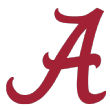
Alabama
The Crimson Tide haven't acknowledged whether they are under investigation or if they have received a notice of allegations.
In September 2017, associate athletic director Kobie Baker resigned after university officials questioned him about his involvement in a meeting between Auburn assistant coach Chuck Person and Rashan Michel, a former NBA official and Atlanta clothier, who later pleaded guilty to bribery conspiracy.
Baker, who oversaw Alabama's basketball administration and served as a liaison to the SEC office, compliance services and student-athlete support services, had previously worked for the NCAA.
During a meeting before Baker's resignation, he admitted to Alabama officials that he was the man identified as "Staff Member 1" in a federal complaint against Person and Michel, sources told ESPN.
According to the complaint, Michel arranged a meeting between financial adviser Martin Blazer, a cooperating witness in the FBI investigation, and Staff Member 1 on or around May 3, 2017. The FBI alleged Blazer paid $5,000 to Staff Member 1 and $2,000 to Michel.
In November 2018, ESPN reported that aspiring business manager Christian Dawkins, a defendant in both federal trials, proposed providing then-Alabama star Collin Sexton $1,500 each month from September 2017 until April 2018, plus $23,000 in travel expenses for his family. His brother, Jordan Sexton, was also going to receive a four-year contract from Dawkins' proposed management company worth a total of $170,000. Sexton was briefly declared ineligible in his only season with the Crimson Tide in 2017-18. Dawkins' phone records from May 3, 2017 to July 2, 2017, which were released by federal prosecutors, included 15 calls to a number belonging to the Sexton family.
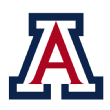
Arizona
The Wildcats acknowledged receiving a notice of allegations on Oct. 23 but have declined to reveal its contents. According to sources, Arizona is charged with nine rules violations, including five Level I allegations. The university is charged with lack of institutional control and failure to monitor, and Miller has been charged with lack of head coach control.
Arizona's outside attorney, Paul Kelly, requested that the case be referred to the IARP shortly after the school received the NOA.
Earlier this week, in response to an open records request from ESPN, an Arizona official said the university wouldn't release the contents until after the IARP process is completed.
"[T]here remains the possibility of additional investigation by the NCAA," the university said in an email. "Therefore, at this time, and in accordance with NCAA bylaws, the University is not releasing the notice of allegations (NOA) as it is in the best interest of the state for any additional investigation to be completed before disclosures are made. Following the conclusion of any additional investigation, the University is committed to releasing the NOA as it recognizes the public interest in its disclosure."
Former Wildcats assistant coach Emanuel "Book" Richardson pleaded guilty to one felony count of conspiracy to commit bribery in a plea deal with federal prosecutors. He was accused of accepting $20,000 to steer Arizona players to certain financial advisers and managers once they turned pro.
During a federal criminal trial in May 2019, prosecutors played a wiretap recording to the jury in which Richardson told Dawkins that Miller was paying then-Wildcats star center Deandre Ayton $10,000 per month while he was enrolled at the school.
During the same recording, Dawkins indicated then-Wildcats guard Rawle Alkins was also receiving improper benefits while playing at Arizona.
Miller has denied paying Ayton, who was the No. 1 pick in the 2018 NBA draft, or any other player to sign with Arizona.
"I never have, and I never will," Miller said during a news conference in March 2018.
There was also testimony, arguments and/or evidence presented during the federal trials that indicated Richardson paid recruit Jahvon Quinerly's mother, which she has denied, and that the Wildcats were prepared to offer $50,000 for recruit Brian Bowen II and $150,000 for five-star prospect Nassir Little.
There also were allegations of potentially two instances of academic fraud.
In February 2019, Arizona suspended assistant coach Mark Phelps indefinitely because of what his attorney told ESPN was an alleged NCAA rules violation. At the time, sources told ESPN that Phelps was accused of a violation regarding former Arizona recruit Shareef O'Neal's academic transcripts. O'Neal, the son of former NBA star Shaquille O'Neal, was committed to the Wildcats in 2017 before signing with UCLA (he has since transferred to LSU).
Additionally, Richardson told undercover FBI agents that he paid a high school coach to ensure that Alkins was academically eligible to play for the Wildcats, according to a transcript of a meeting obtained by ESPN from the U.S. Attorney's Office in New York.
During a June 20, 2017, meeting with Dawkins, financial planner Munish Sood and two undercover FBI agents, Richardson said that Alkins needed one more class to be eligible under NCAA rules, and that an unidentified coach wanted $40,000 to add the class to his official transcript.
In the same meeting, Richardson also told the undercover agents that he was paying Alkins' cousin, Rodney Labossiere, $2,000 per month after he moved to Tucson, Arizona.
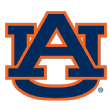
Auburn
Auburn also hasn't indicated whether it has received a notice of allegations from the NCAA and hasn't responded to open records requests from ESPN. In a victim impact statement included in Person's sentencing documents, Auburn said it expected to be charged with rules violations by the NCAA.
Person, the Tigers' former associate head coach, was accused of soliciting and accepting at least $91,500 from Blazer and pleaded guilty to one bribery conspiracy count.
Person was also accused of helping facilitate money to players' families. The government alleged he provided $11,000 to one player's family and $7,500 to another's.
Auburn players Austin Wiley and Danjel Purifoy were ruled ineligible for the 2017-18 season after the university self-reported violations involving recruiting, extra benefits and agents. Purifoy was also suspended for 30% of the 2018-19 season and didn't play in the Tigers' first nine games that season.
AL.com reported in August 2019 that the Tigers had self-imposed recruiting restrictions from September 2017 to April 2018. The school didn't publicly disclose the self-imposed punishment.
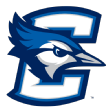
Creighton
Creighton, a private university, hasn't confirmed whether it has received a notice of allegations. Sources previously told ESPN that the Bluejays have been charged with at least one alleged rules violation related to former assistant coach Preston Murphy.
Murphy was put on administrative leave in March 2019 after he was named in a federal indictment that accused him of accepting $6,000 from Dawkins in a Las Vegas hotel room in 2017 to steer players to Dawkins' management company. Murphy was not charged with a crime.
Dawkins' attorney argued that Murphy gave Dawkins back the money after the meeting. Murphy resigned from the school in November 2019.
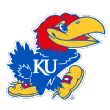
Kansas
The Jayhawks received a notice of allegations in September 2019 and are charged with five Level I rules violations, including lack of institutional control.
Self is charged with head-coach responsibility violations. The case will be adjudicated through the IARP process.
The NCAA enforcement staff described the Kansas violations as "egregious, severe and are the kind that significantly undermine and threaten the NCAA Collegiate Model."
Kansas is also charged with two Level II violations and one Level III violation related to the football program under former coach David Beaty.
Kansas officials, along with Self and basketball assistant Kurtis Townsend, are disputing each of the five Level I violations regarding the men's basketball program, as well as each of the nine aggravating factors cited by the NCAA.
Specifically, the university and Self dispute that Adidas or its employees were acting as boosters for the program.
In September 2019, former Adidas consultant T.J. Gassnola was sentenced to probation and fined for his role in pay-for-play schemes to steer recruits to the Jayhawks and other Adidas-sponsored programs.
Former Adidas executive James Gatto was accused of working with Gassnola to facilitate $90,000 from Adidas to former Jayhawks recruit Billy Preston's mother and agreeing to pay $20,000 to Fenny Falmagne, De Sousa's guardian, to help him "get out from under" a pay-for-play scheme to attend Maryland, which is sponsored by Under Armour.
The NCAA also included allegations that Gassnola provided $15,000 to an unidentified individual to give to DeAndre Ayton's mother, and that Gassnola "communicated in a text message to Self that he had let Self down" when Ayton signed with Arizona.
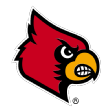
Louisville
The Cardinals received a notice of allegations in May and will also have their case handled by the IARP.
The NCAA charged Louisville with one Level I allegation involving improper recruiting offers for Brian Bowen II and the coach of another prospect and three Level II allegations, including one against Pitino. Louisville also is accused of failing to adequately monitor the recruitment of an incoming, high-profile student-athlete.
The NCAA alleges that Pitino did not satisfy his head coach responsibility when he failed to promote an atmosphere of compliance. Former assistant coaches Kenny Johnson and Jordan Fair are accused of providing impermissible benefits and transportation and having impermissible contact with a recruit.
Like in the Kansas case, the enforcement staff has alleged that Adidas and its employees and associates were boosters and agents of Louisville during the period of the alleged violations and therefore acting on its behalf when they allegedly engaged in violations of NCAA bylaws.
The Cardinals have been put on NCAA probation three times since 1996, which was cited as an aggravating factor by the NCAA. The enforcement staff also noted that at the time Pitino allegedly failed to promote compliance in his program regarding Bowen's recruitment, "he was awaiting a decision from the Committee on Infractions and subsequently subject to a show-cause order as a result of the decision, a Level I head coach responsibility infraction."
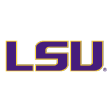
LSU
In August, ESPN reported the NCAA enforcement staff said it received information that Wade "arranged for, offered and/or provided impermissible payments, including cash payments, to at least 11 men's basketball prospective student-athletes, their family members, individuals associated with the prospects and/or nonscholastic coaches in exchange for the prospects' enrollment at LSU."
The following month, the NCAA announced the LSU case would be handled by the IARP.
An HBO documentary earlier this year included audio recordings in which Wade talked about making a "strong ass" offer to sign a high-profile recruit. "The Scheme" included audio of a lengthy telephone call between Wade and Dawkins, in which Wade discussed the offer to sign coveted guard Javonte Smart.
ESPN and Yahoo Sports had previously reported about the contents of the call.
Wade, who was suspended and then reinstated after those reports in 2019, denied doing business for players with Dawkins.
"I think the only way you can interpret someone in a head-coaching position saying that they made a strong-ass offer, they ain't talking about a scholarship offer, bro," Dawkins said in the documentary. "One hundred percent talking about money."
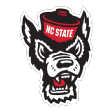
NC State
The Wolfpack's notice of allegations arrived in July 2019 and its case will also be handled by the IARP. The NCAA alleged two Level I violations against the school, including a failure-to-monitor charge against former coach Gottfried, who is now coaching at Cal State Northridge.
Former Wolfpack assistant Orlando Early is accused of helping facilitate a $40,000 payment from Gassnola to star player Dennis Smith Jr.'s family in October 2015.
The NCAA said Smith was ineligible while competing in 32 contests for the Wolfpack during the 2016-17 season, for which he was named ACC freshman of the year.
NC State officials disputed that there was sufficient evidence to prove the NCAA's allegation that Gassnola gave $40,000 to Early, who was supposed to help facilitate getting the money to Smith's family.
The Wolfpack argued that Adidas, which the enforcement staff considered an NC State booster, wasn't the source of the alleged $40,000 payment from Gassnola to Early. NC State alleges the money came from Martin Fox, a Texas-based middle man who is "affiliated with professional basketball player agents and business managers and who had no known relationship with Adidas."
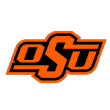
Oklahoma State
In June, the NCAA Committee on Infractions put the Cowboys on three years of probation and banned them from playing in postseason tournaments this season.
The penalties were the result of one Level I violation involving former associate head coach Lamont Evans, who was sentenced in June 2019 to three months in prison for accepting between $18,150 and $22,000 in bribes to steer players from South Carolina and Oklahoma State to agents and financial advisers.
OSU, which also reduced scholarships and recruiting visits and paid a fine, has appealed the penalties. The NCAA also hit Evans with a 10-year show-cause penalty.
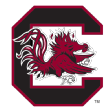
South Carolina
The Gamecocks announced in February that they had received a notice of allegations related to Evans' conduct while he coached there. South Carolina said it had been charged with one Level I allegation related to Evans accepting at least $5,865 in bribes from Dawkins in 2015-16.
Dawkins allegedly paid Evans to help set up meetings with then-Gamecocks star PJ Dozier and his family. Dawkins was working for NBA agent Andy Miller of ASM Sports at the time.
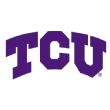
TCU
The Horned Frogs announced in January that they had received a notice of allegations related to alleged violations involving former assistant coach Corey Barker, whom prosecutors accused of accepting $6,000 in bribes from Dawkins.
Like Murphy, Barker was named in a superseding indictment against Code and Dawkins. TCU fired Barker in March 2019.
Dawkins testified that Barker returned the money to him shortly after a meeting in a Las Vegas hotel room in July 2017. Barker was never charged with a crime.
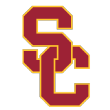
USC
The Trojans disclosed in December that they had received a notice of allegations but have declined to release it or discuss the alleged violations.
Former Trojans assistant coach Tony Bland pleaded guilty in January 2019 to one felony count of conspiracy to commit bribery, admitting he accepted $4,100 in cash to steer players at the school to certain financial advisers and business managers once they turned pro.
In January 2018, USC suspended guard De'Anthony Melton for the entire season after determining a close family friend received an extra benefit. That friend, Dave Elliott, allegedly took a plane ticket and possibly payment for a hotel room at a basketball event in Las Vegas, according to Melton's attorney, Vicki Podberesky. Melton withdrew from the school the next month and turned pro.
